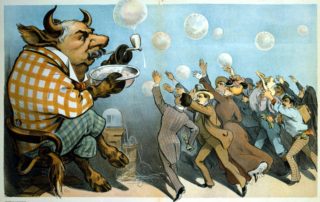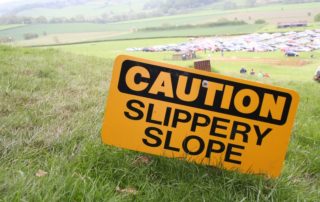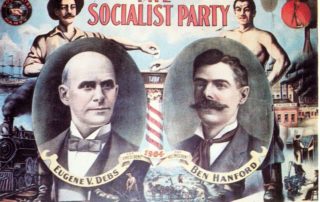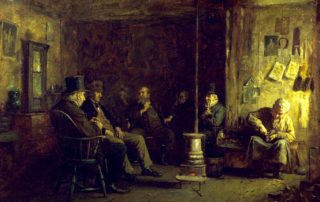Women Rule – How They Took Down a King
By: Elizabeth Larkin Bouché As inauguration day approaches and women ready themselves for the Women’s March on Washington, I am
Rethinking the Goals of Finance: Lessons from the Amherst Arbitrage
By: John Brodie Gay & Jeremy Kingston Cynamon I. BACKGROUND Financial devices, like all technologies, develop – sometimes intentionally, sometimes
What is “Fascist”? Umberto Eco on Ur-Fascism
"There is in our future a TV or Internet populism, in which the emotional response of a selected group of citizens can be presented and accepted as the Voice of the People." -Umberto Eco
Chuck Klosterman and Relative Morality
When I was fifteen I had ridiculous opinions. Of course, at the time I didn’t think they were ridiculous, I thought they were well deliberated, intelligent, and insightful. When I was fifteen, I was of the opinion that we shouldn’t legalize gay marriage. Now, I couldn’t imagine holding this opinion, and I even look disdainfully upon those who do. How can my opinion change this fast? And how certain can I be of my current opinion, or will it too change? Chuck Klosterman’s newest book, "But What If We’re Wrong?: Thinking About The Present As If It Were The Past" explores these problems through the question of how future society will look back upon us and our opinions.
The US Left: A Short Introduction
Is there a US Left? More specifically, is there a popular movement for socialism in the United States that has any chance of affecting national policy any time soon? Despite rising interest in socialism, there is an enormous gap between this and the emergence of a solid and coherent national political force with a capacity to grow. To understand this gap – and why it has been so persistent – we must look to the structural factors that make the US so difficult for the Left.
Philosopher-Kings in the Kingdom of Ends: Why Democracy Needs a Philosophically-Informed Citizenry
How do you turn a democracy into a tyranny? The answer, as those familiar with Plato’s Republic will know, is: Do nothing. It will become a tyranny all by itself.
Progress and its Implications
How do we determine whether our society is getting better or worse? Have we experienced progress or regress in the last 100 years? 1000 years? Ever? Any claim that something has progressed requires a value judgment. Since progress denotes something good we must have some notion of what is good (or ‘the good’), however vague, in order to defend our claim.
Locke and the Right to (Acquire) Property: On the Philosophical Basis of Progressive Liberalism
Do the rich pay their fair share in taxes? What is a “fair share”? Do governments have the right to tax some in order to provide services for others, or is this just theft? To answer these current political questions we must examine the philosophical underpinnings of liberalism, both in its classical form, as articulated by John Locke, and in its contemporary “progressive" form.
Georgetown and Slavery: Catholic Redemption in Contemporary Political Time
By: Justin R. Harbour, ALM Georgetown University is currently engaged in an attempt to research, understand, and repair its role
Antithesis in Federalist Number One
By: Nicholas Napolio [perfectpullquote align=”full” cite=”Alexander Hamilton, Federalist Number One” link=”” color=”” class=”” size=”16″]It has been frequently remarked that it










